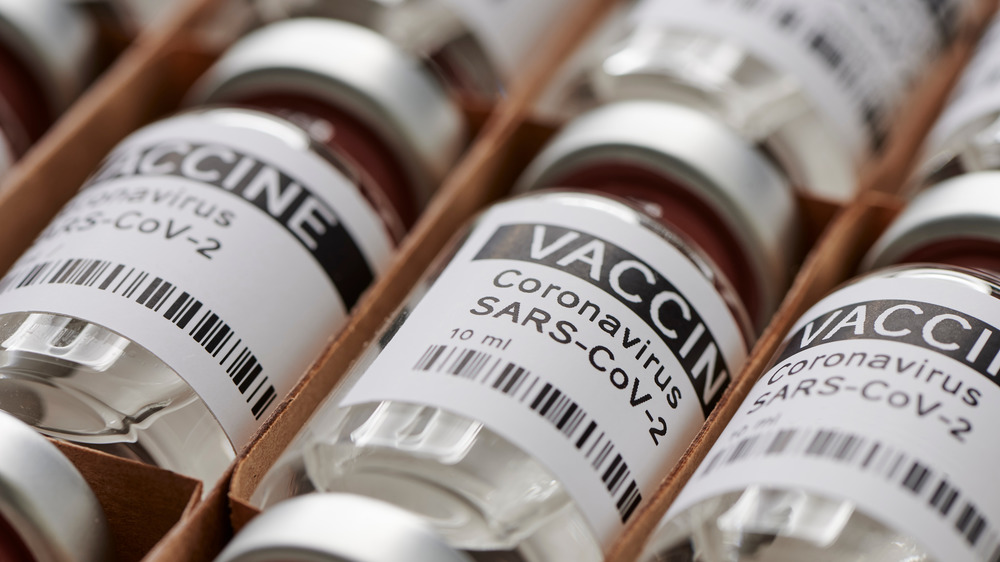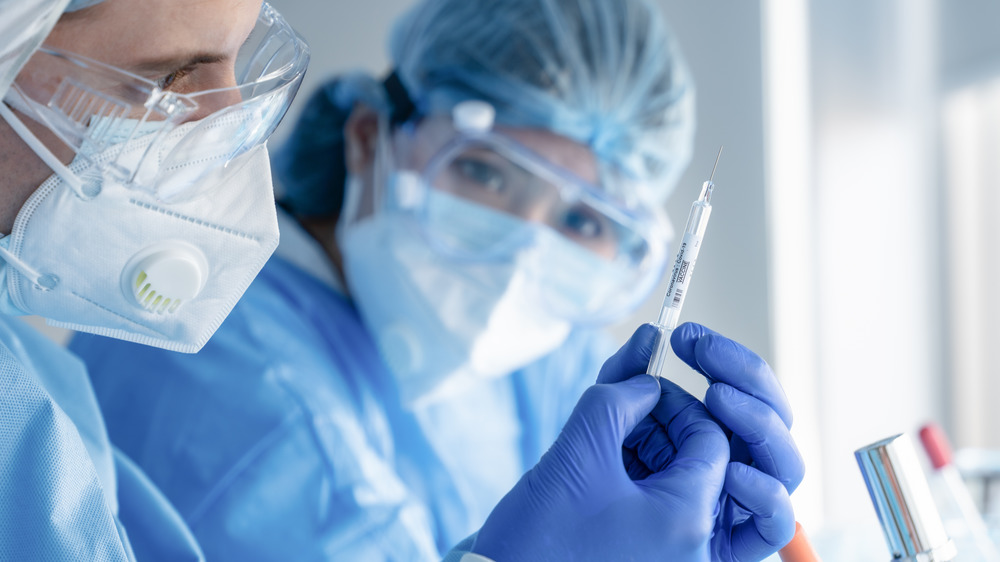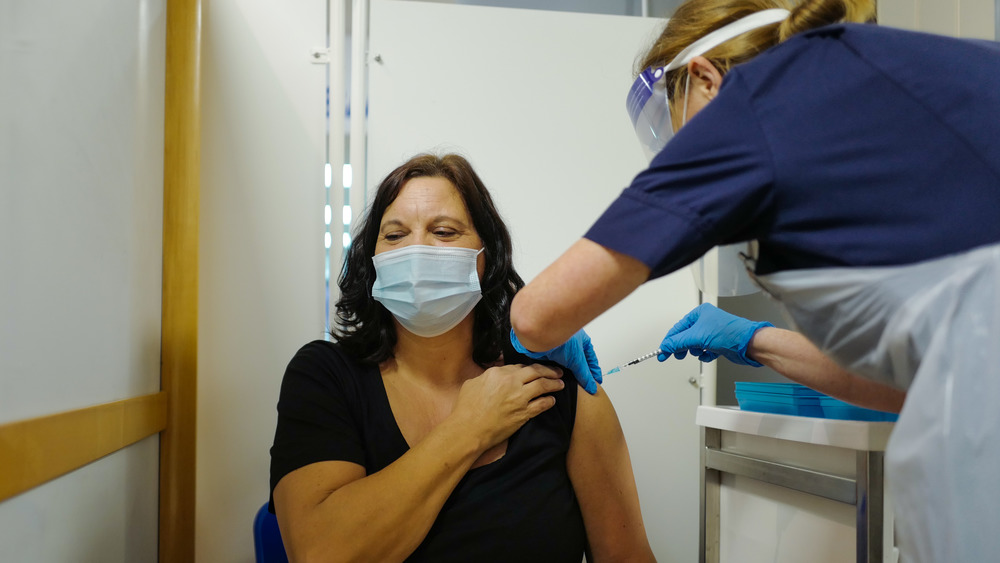What The FDA Panel Approval Means For The Pfizer COVID-19 Vaccine
The U.S. Food and Drug Administration on Friday said it intends to "proceed towards an authorization" of the COVID-19 vaccine developed by the team of Pfizer and BioNTech, with health officials saying that the first vaccinations could begin as early as next week (via CNN). But don't start scouring for how to make an appointment just yet. Governors are prioritizing who will receive the vaccine, with health care workers at the top of the list. Residents who are more vulnerable to the coronavirus, such as those living in long-term care facilities, likely will be next, CNN notes.
What's more, a committee of the U.S. Centers for Disease Control and Prevention needs to recommend the vaccine for any inoculations to begin; that vote likely will occur over the weekend. But the FDA's emergency use authorization means that the federal initiative Operation Warp Speed can begin distributing the vaccine to states.
Virus spread worsens, with at least 200 hospitals in the U.S. are at full capacity
An independent advisory committee for the Food and Drug Administration on Thursday voted to recommend the emergency use of the Pfizer/BioNTech vaccine nationwide, with 17 approving its use, four people voting against the measure, and one abstaining. The committee recommended the use of the vaccine for people ages 16 years or older, in spite of a lack of data from clinical trials involving people that young (via Healthline).
Moderna also has developed a potential vaccine, which likewise is awaiting emergency use authorization from the FDA. Regulators in the United Kingdom and Canada already have approved the use of the Pfizer/BioNTech vaccine, with inoculations in those countries beginning earlier this week.
Although two health care workers in the UK experienced an allergic reaction to the vaccine, Pfizer and BioNTech say they do not have concerns about the vaccine's safety overall. The steps toward distribution and vaccination in the United States come as the hospitalizations related to the coronavirus this week reached a record high of 107,248, according to the COVID Tracking Project housed at The Atlantic.
The U.S. Department of Health and Human Services said that at least 200 hospitals nationwide were at full capacity last week. According to the Coronavirus Resource Center at Johns Hopkins University, there have been 69.8 million cases of COVID-19 worldwide and 1.6 million deaths since the outbreak began. As of Friday, the United States leads the world in the number of cases (15.6 million) and deaths (292,611), this data shows.
Vaccine's side effects are similar to mild COVID-19 symptoms, volunteers say
A briefing document for the FDA advisory committee cited the clinical trial data about the vaccine's safety and success rate. The data says the two-dose vaccine has an average efficacy of 95 percent in protecting people against symptomatic infection of the coronavirus, formally called SARS-CoV-2, at least seven days after the second dose.
Drug manufacturers Pfizer of New York City and BioNTech of Mainz, Germany, involved nearly 44,000 volunteers in clinical trials of the vaccine. Early data released in November touting its effectiveness was based on about 100 enrollees. The companies said they would continue to monitor the participants for long-term protection and safety for an additional two years after they received their second dose. The vaccine does have side effects similar to mild COVID-19 symptoms, including headache, chills, and muscle pain, CDC officials say. Volunteers reported these were at times intense and uncomfortable but often eased after a day.



